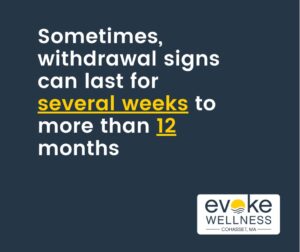As someone dealing with seizures or epilepsy, you may have been prescribed clobazam, also known by the brand name Onfi, to help control them. While this benzodiazepine can be an effective treatment, it also comes with potential side effects you need to be aware of. Monitoring and managing these side effects properly is key to ensuring clobazam provides more benefits than risks. Being informed and proactive can help you use clobazam safely and effectively as part of your overall epilepsy treatment plan. To begin your recovery journey, call us at (617) 917-3485 today or reach out online.
What Is Clobazam and How Does It Work?
A Benzodiazepine Sedative
Clobazam is a benzodiazepine medication prescribed to treat anxiety disorders, seizures, and insomnia. As a sedative-hypnotic drug, it works by enhancing the effects of gamma-aminobutyric acid (GABA) in the brain. GABA is an inhibitory neurotransmitter that slows down nerve activity, producing a calming effect.
Mechanism of Action
Clobazam binds to specific GABA receptors in the brain, increasing their sensitivity. This amplifies GABA’s natural ability to reduce neuronal excitability, leading to sedation, muscle relaxation, and anti-anxiety effects. The drug also has anticonvulsant properties that help prevent seizures by stabilizing electrical activity in the brain.
Common Side Effects of Clobazam
Drowsiness & Fatigue
The most common side effects of clobazam are drowsiness and fatigue. This benzodiazepine can cause excessive sleepiness, especially when first starting the medication. Be cautious when driving or operating machinery.
Dizziness & Lack of Coordination
Clobazam may impair your coordination and balance, leading to dizziness or unsteadiness. Move slowly when standing to avoid falls or injuries.
Memory Problems
Some patients experience issues with concentration, memory lapses or confusion while taking clobazam. Stay mentally alert and avoid risky situations requiring full attention.
Respiratory Depression
In high doses or when combined with other depressants, clobazam can dangerously slow breathing. Never mix it with alcohol, opioids or sleeping pills without doctor approval. Seek immediate medical care if you experience shortness of breath.
Side effects can increase the longer you take clobazam. Suddenly stopping can also cause withdrawal symptoms, so taper off gradually under medical supervision. Report any worrisome or persistent side effects promptly.
Serious Side Effects to Watch For
While clobazam can be an effective treatment, it carries risks of potentially serious side effects. The most concerning include:
1. Respiratory Depression
Clobazam slows activity in the brain, which can dangerously reduce breathing rate and depth. Signs include slow, shallow breathing and excessive sleepiness. Seek medical help immediately if this occurs.
2. Suicidal Thoughts or Actions
Some patients experience worsening depression, suicidal thoughts or behavior, especially when first starting clobazam. Monitor mood closely and contact your doctor about any concerning changes.
3. Withdrawal Symptoms
Never stop taking clobazam suddenly, as this can trigger seizures, hallucinations, tremors, and stomach/muscle cramps. Your dosage must be tapered slowly under medical supervision to monitor withdrawal symptoms. Sometimes, withdrawal signs can last for several weeks to more than 12 months.
Promptly report any worrying physical or psychological changes to your doctor. With proper monitoring and precautions, serious side effects may be prevented or minimized. However, do not hesitate to seek emergency care if severe symptoms arise. Many facilities provide acute detox programs that assist in safely tapering off of these types of medications.
Interactions and Warnings With Clobazam
Potential Drug Interactions
Clobazam can interact with other medications, potentially causing dangerous side effects. Be cautious mixing clobazam with:
- Opioid painkillers (increased sedation)
- Antidepressants like fluoxetine (increased clobazam levels)
- Anticonvulsants like phenytoin (decreased clobazam levels)
Always inform your doctor of all medications you’re taking.
Substance Abuse Risks
Clobazam is a benzodiazepine that carries risks of physical dependence and addiction with long-term use. Never take more than prescribed or abuse the medication recreationally.
Combining clobazam with alcohol or other depressants amplifies sedative effects, increasing overdose risks. Seek medical help if you struggle with substance abuse while taking clobazam. Specifically, seek benzo rehab programs that are designed to safely and effectively help you or loved ones struggling with this addiction.
Usage Precautions
Clobazam may impair thinking and motor skills, so avoid driving or operating machinery until you know how it affects you. The medication can also increase risks of falls, especially in the elderly.
Abruptly stopping clobazam after regular use can trigger dangerous withdrawal effects like seizures. Always taper off the drug slowly under medical supervision.
Tips for Taking Clobazam Safely
Consult Your Doctor
Always take clobazam exactly as prescribed by your doctor. Never adjust your dosage without medical supervision. Disclose any other medications, supplements or health conditions that could interact with clobazam.
Monitor Side Effects
Be aware of potential side effects like drowsiness, dizziness, and confusion. Do not drive or operate heavy machinery until you know how clobazam affects you. Report any concerning or persistent side effects to your doctor immediately.
Avoid Alcohol
Do not consume alcohol while taking clobazam, as it can dangerously increase sedative effects and impairment. This combination can be life-threatening.
Follow Usage Guidelines
Take clobazam with food if recommended. Never crush, break or chew extended-release tablets. Store clobazam properly in a cool, dry place away from moisture and heat.
Plan Ahead for Travel
Carry your medication in its original packaging with the prescription label. Get a note from your doctor explaining your need for clobazam if traveling abroad.
Seeking Treatment for Clobazam Dependence
Professional Support
Clobazam dependence can be challenging to overcome alone. Seeking professional support from addiction specialists is crucial for a safe and effective recovery process. Qualified professionals provide medical supervision during detoxification, manage withdrawal symptoms, and offer counseling to address the underlying issues contributing to substance abuse.
Inpatient Rehabilitation
For severe cases of clobazam dependence, inpatient or residential treatment rehabilitation programs may be recommended. These programs offer a structured, substance-free environment with around-the-clock medical care and therapeutic interventions. Inpatient rehab allows individuals to focus solely on their recovery without external distractions or access to the drug.
Outpatient Treatment
Outpatient treatment programs provide flexibility for individuals with mild to moderate clobazam dependence who have a stable living environment and support system. These programs offer counseling, group therapy, and other services while allowing individuals to maintain their daily responsibilities.
FAQ: Clobazam Side Effects
What Are Common Side Effects?
The most frequently reported clobazam side effects include drowsiness, dizziness, fatigue, and problems with coordination. Some users may also experience irritability, memory issues, or blurred vision.
Are There Serious Risks?
While generally well-tolerated, clobazam can potentially cause serious side effects in some cases. These include respiratory depression, suicidal thoughts/behaviors, severe allergic reactions, and withdrawal symptoms upon discontinuation.
How Can I Reduce Side Effects?
Start with the lowest effective dose and increase gradually as needed. Avoid operating heavy machinery until you know how clobazam affects you. Report any concerning side effects to your doctor immediately.
Conclusion
In closing, clobazam can be an effective treatment for epilepsy and anxiety, but also has risks. Being aware of potential side effects and staying in touch with your doctor is key. Seek help right away if you or a loved one show signs of dependence or addiction. There are resources available to safely stop taking clobazam under medical supervision if needed. With the right care team, clobazam can be used judiciously to improve quality of life. But your wellbeing should always come first. You deserve to feel empowered in your treatment decisions.
Begin Your Journey with Evoke Wellness at Cohasset
If you or a loved one is considering treatment, Evoke Wellness at Cohasset invites you to contact us. Our compassionate team is ready to answer your questions, discuss your needs, and help you take the first steps toward recovery. In Cohasset, you’ll find more than just a treatment program – you’ll discover a community dedicated to your wellness and success. Together, let’s embrace the journey to recovery and the promise of a new beginning. Call us at (617) 917-3485 today or reach out online.





